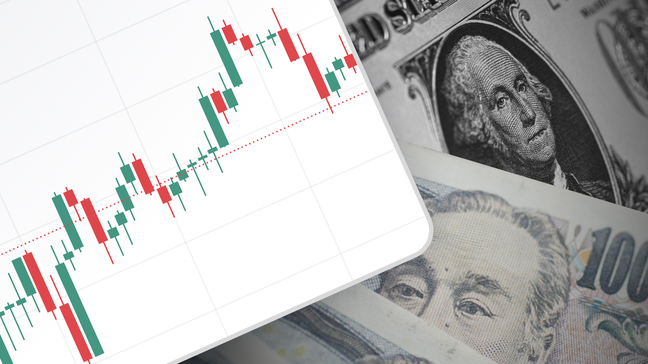Global markets pare US inflation-inflicted wounds amid a dicey start to Friday’s trading. Traders remain cautious after the upbeat US CPI contrasted with fears of policy pivot and mixed central bankers’ talks. Also keeping market players on their toes are the concerns over Israel and China, as well as the cautious mood before a few more US consumer-centric data.
However, the mostly firmer China data and chatters of a sooner end to the Israel-Hamas war joined the market’s consolidation to help ease the rush toward risk safety.
With this, the US Dollar Index (DXY) pares the biggest daily jump in two weeks and allows commodities, as well as the Antipodeans, to lick their wounds. The same allowed EURUSD, GBPUSD and AUDUSD to print mild gains. That said, the yields also retreat and join slightly positive Japan fundamentals to weigh on the USDJPY, especially amid talks of the Bank of Japan’s (BoJ) exit from the restrictive monetary policy.
Elsewhere, Gold remains firmer at the highest level in 12 days whereas Crude Oil extends the previous day’s rebound from the weekly low. Additionally, BTCUSD and ETHUSD also pare the biggest weekly loss in two months. Even so, the Asia-Pacific shares edge lower while tracing the Wall Street benchmarks and lackluster stock futures from the West.
Following are the latest moves of the key assets:
- Brent oil rises 1.30% intraday to extend the previous day’s rebound from weekly low to $88.00 by the press time.
- Gold price remains mildly bid around $1,880, up 0.60% intraday near the highest level in two weeks.
- USD Index stays defensive at weekly high of around 106.50 after rising the most in two weeks the previous day.
- Wall Street closed with mild losses and the Asia-Pacific stocks edged lower. However, equities in Europe and the UK trade mixed at the latest.
- BTCUSD and ETHUSD brace for the biggest weekly loss in two months despite positing mild intraday gains around $26,800 and $1,550 as we write.
Traders consolidate US inflation-led moves ahead of more data, speeches
US inflation, per the Consumer Price Index (CPI) gauge, reprinted 3.7% YoY increase for September versus 3.6% market forecasts. The monthly CPI figures also rose by 0.4% versus 0.3% expected and 0.6% prior while the CPI ex food & Energy, known as the Core CPI, matched 0.3% MoM and 4.1% YoY figures for the said month. Further, the Weekly Initial Jobless Claims also reprinted 209K figures compared to analysts’ estimations of 210K.
Earlier in the week, the US Producers Price Index (PPI) also cited the inflation woes and helped the Fed hawks to remain hopeful, which in turn propelled the US Dollar. Federal Reserve Bank of Boston President Susan Collins said that the central bank is at or near the peak of the interest rate hike cycle while also favoring the need for patience.
Talking about geopolitics, Israel’s harsh response to the Hamas attack and attacks on Iranian properties in Syria joined the US readiness to block China’s illegitimate use of American artificial intelligence (AI) chips to weigh on the sentiment. It should be noted, however, that the humanitarian approach is likely to follow for the citizens of Gaza and may pause the deadly war amid global pressure, which in turn may help the risk profile to stabilize.
On the other hand, the ECB commentary appeared to lack a hawkish tone and exerted downside pressure on the EURUSD.
As per the European Central Bank's (ECB) September policy meeting accounts, some policymakers expressed a preference for maintaining key rates at current levels. On the same line, ECB Governing Council member and Bank of Portugal Governor, Mario Centeno, said that the current stance will get inflation to the target. Further, the ECB Official Pierre Wunsch also teased policy pivot but Governing Council member and Bank of France President, Francois Villeroy de Galhau, said that “Monetary patience is more important than activism at present.”
Not only the Fed and ECB officials but the Bank of England (BoE) Chief Economist Huw Pill spoke on the sidelines of the annual International Monetary Fund (IMF) meeting on Thursday and said it was a finely balanced issue whether the BoE needed to tighten the policy further.
In the case of energy market, Russian Deputy Prime Minister Alexander Novak said that the global market is balanced but the balance is fragile whereas the International Energy Agency (IEA) raised the global oil demand growth forecast for 2023 while downgrading it for the next year.
On Friday, China's CPI eased to 0.2% MoM from 0.3% while PPI improved to -2.5% from -3.0% prior and -2.4% market forecasts. However, the nation’s trade surplus widened to $77.71B from $68.36B, versus $70.0B expected.
On a different page, International Monetary Fund (IMF) Director Kristalina Georgieva warned against a sharp further tightening of financial conditions while citing concerns that it could hit banks, and non-banks. The same renews concerns about the policy pivot at major central banks and challenges the US Dollar’s haven demand.
- Strong buy: USDCAD
- Strong sell: ETHUSD, GBPUSD, Gold
- Buy: USD Index, Nasdaq, USDJPY
- Sell: DAX, FTSE 100, BTCUSD, AUDUSD, EURUSD
Multiple catalysts to watch…
Looking forward, ECB President Christine Lagarde, BoE Governor Andrew Bailey and Bank of Canada (BoC) Governor Tiff Macklem are scheduled for speeches and can fuel their respective currencies. Also important to watch will be the first readings of the University of Michigan’s (UoM) Consumer Sentiment Index and the inflation expectations for October, as well as Saturday’s general elections in New Zealand. Apart from that, the ongoing Israel strikes on Hamas and the US-China tensions are extra factors needing attention for a clear market view.
May the trading luck be with you!




